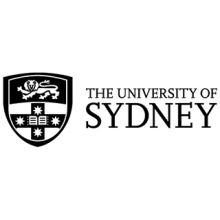Australia’s regional universities are pushing for incentives rather than regulation to bolster their international enrolments, saying that they would be the biggest losers if the government tried to help them by capping foreign student numbers in the cities.
In September, the new prime minister, Scott Morrison, floated the idea of limiting overseas enrolments in urban areas as a way of steering more students into the regions. But Adam Shoemaker, the vice-chancellor of Southern Cross University, told the Regional Universities Network conference at SCU’s Gold Coast campus that regulation would not help.
“It’s not about forcing people to behave in a certain way – it’s all about choice,” Professor Shoemaker told the conference. “We are not proposing a Bonegilla Migrant Camp,” he added, in a reference to a notoriously isolated post-war refugee resettlement facility.
Regional campuses were hit hardest by the government’s 2017 move to freeze teaching grants because they have few other sources of revenue and they cater to areas with low higher education participation – suggesting that they have substantial untapped demand.
Making matters worse, they earn little from international tuition fees – Australian universities’ only growing source of cash – with regional areas hosting just 3 per cent of the foreign students in the country, according to education department figures.
However, regional universities also have city branch campuses that attract big-spending overseas students. Jonathan Chew, an international education expert with the Nous Group consultancy, said that these relatively small operations – rather than big urban institutions such as the universities of Sydney and New South Wales – would be the first to lose students if the government limited visas for city study.
Five of the six RUN member institutions have campuses or study hubs in Sydney, with four boasting outposts in Melbourne and three in Brisbane. Scott Bowman, the vice-chancellor of Central Queensland University, said that international students comprised 48 per cent of students at his campus in Brisbane, about 65 per cent in Sydney and 85 per cent in Melbourne.
Professor Bowman said that Mr Morrison’s proposal to limit visas for city study was an “absolutely daft” way to treat Australia’s third-biggest export industry.
“To say we’re going to tinker with that and try to get people out into the bush – why isn’t he saying that about tourism? There’s too many people in Sydney looking at the bloody Harbour Bridge; let’s get them all to go to Wagga Wagga?
“Our Chinese, Indian and Nepalese students want to go where there are communities and they’re going to feel supported. We’re not competing with Sydney – we’re competing with London, Toronto and Auckland.”
Other RUN vice-chancellors told the conference that any attempt to coerce international students to come to their universities would be counter-productive. They said that the best approach was to highlight the environmental benefits, low living costs and employment opportunities in regional communities.
Times Higher Education has been told that Mr Morrison’s office remains attracted to the proposal of capping visas for urban study. But Cabinet ministers are trying to water the idea down, fearing that it would sabotage education exports by making international students avoid Australia altogether.
Louise Pratt, Labor’s shadow assistant universities minister, said that international education was “incredibly sensitive” to government intervention, and that the government’s first responsibility was to “do no harm” to the sector.
Professor Shoemaker said that merit-based scholarships, modelled on the bonded scholarships once available to teaching students, could attract both domestic and international students to regional universities.
Register to continue
Why register?
- Registration is free and only takes a moment
- Once registered, you can read 3 articles a month
- Sign up for our newsletter
Subscribe
Or subscribe for unlimited access to:
- Unlimited access to news, views, insights & reviews
- Digital editions
- Digital access to THE’s university and college rankings analysis
Already registered or a current subscriber? Login











